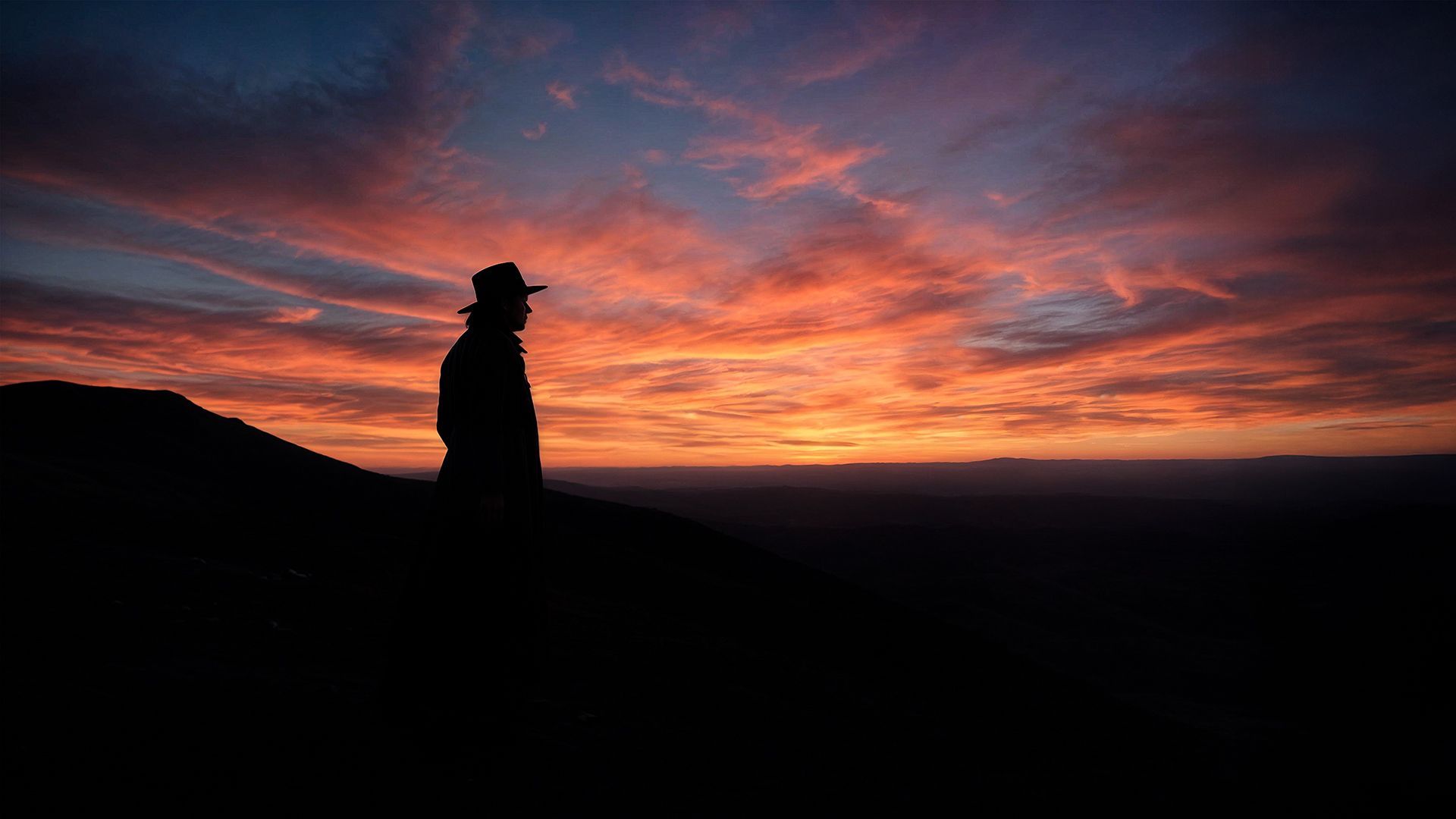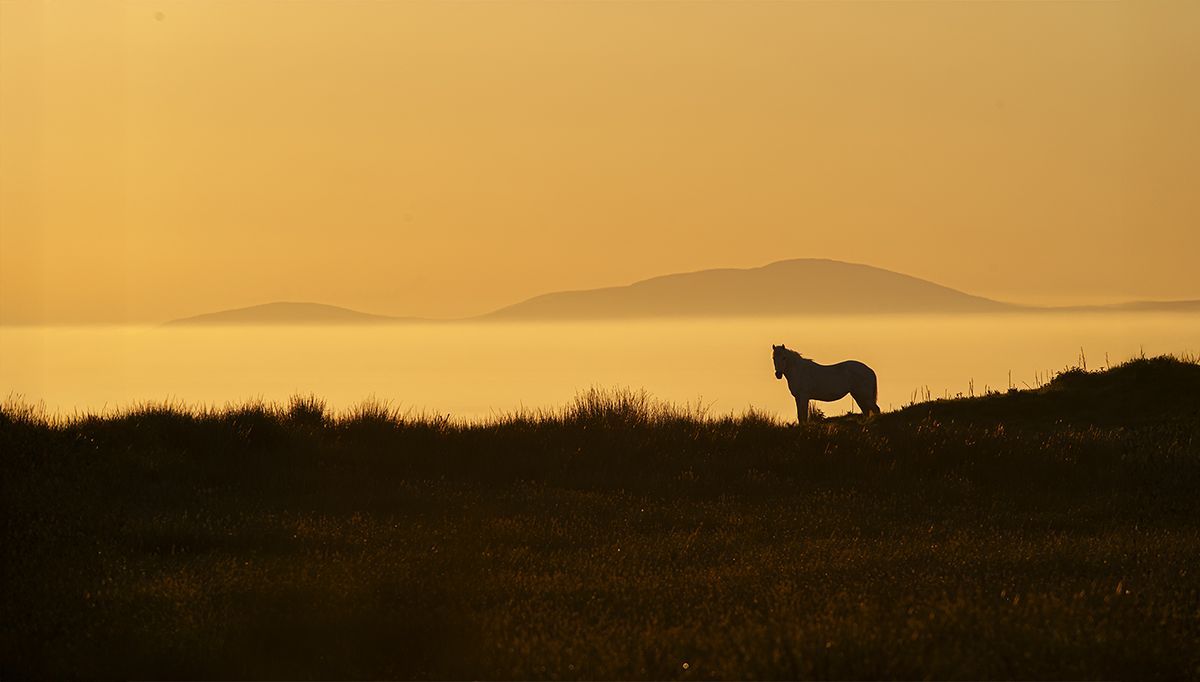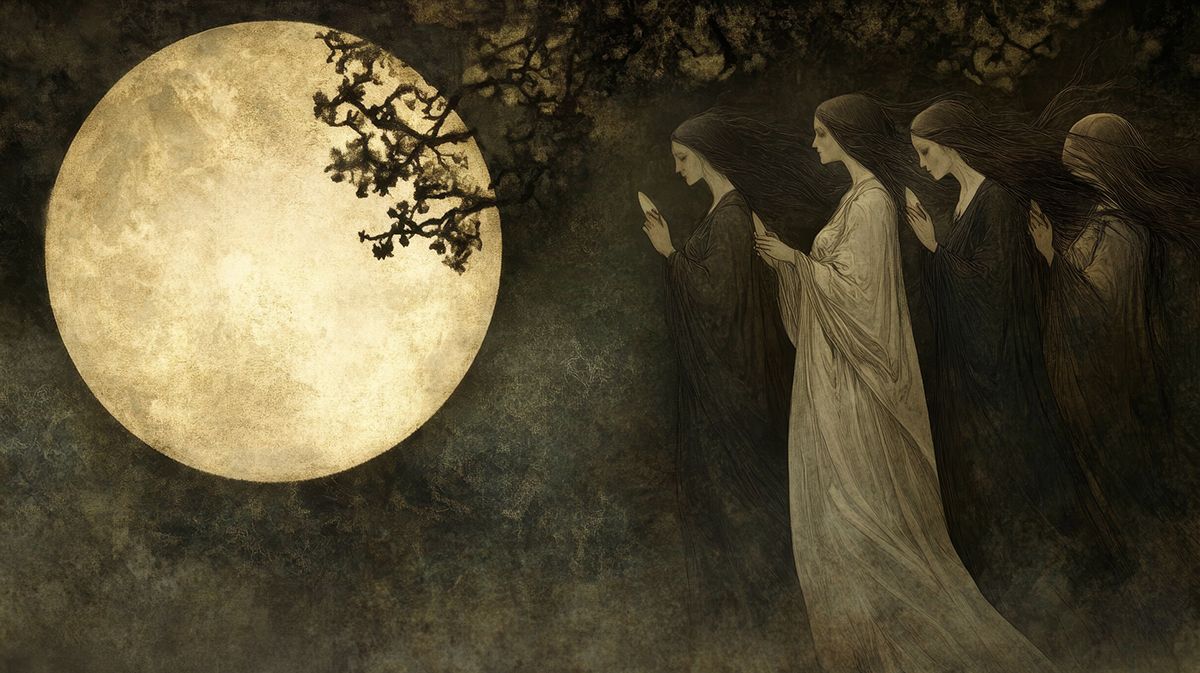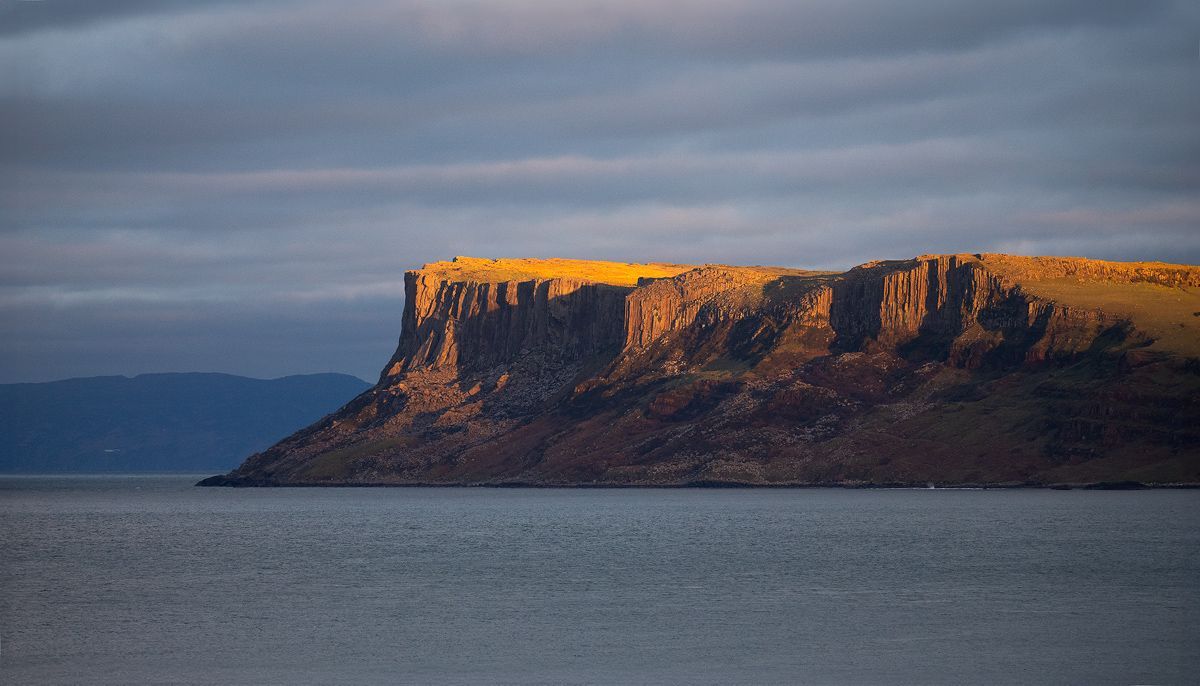Miss McCaw (Sam Mary Ann)

This song ( https://youtu.be/3nl0KtMPoEs ) takes me back to memories of my childhood and teenage years, experiences that played a big part in shaping my perception of gender and an unwavering belief in the freedom to be yourself, to speak your truth, and to live authentically without harming others.
After my parents separated, I was placed in an orphanage, and later, around nine years old, I (and my brother) moved to live with my grandparents at Brigend in the quiet rural townland of Cloughcorr, on the Straid Road. It was during this time that the inspiration for this song took root.
One day, I saw a tall, striking figure with rosy cheeks, whom I’ll call Miss McCaw, striding past my grandmother’s house. She walked with six dogs ahead of her on leads, wearing a dark paisley dress, a long coat, a black hat, and sturdy work boots. As a young child, I had never seen so many dogs together at one time, nor anyone who looked quite like her. The combination of the two left a big impression and I rushed inside to tell my grandmother. She listened and casually replied, “Och! That’s Sam Mary Ann.” From that moment on, I knew her as Sam Mary Ann, though in later life I learned that Miss McCaw was how she liked to be addressed in person. Out of respect, I use that title here, but in the song, I’ve kept the name that lingered in my memory and is in the lyrics of the song.

Throughout the time with my grandparents, I saw Miss McCaw frequently. Sometimes she was with her dogs, other times carrying a large bag on her shoulders, and on one occasion carrying two black cauldrons, used for cooking over an open fire. As a child, I associated the cauldrons with witches from the stories I had read, which made me both wary and intrigued by her. Miss McCaw lived at Novally, a small clachan not far from my grandmother’s home.
Every school day along with other children we walked the three-miles to primary school in Ballycastle passing through Novally on the way. A man called Dan kept a small shop in his cottage at Novally that sold essentials and also sweets. On a few occasions, my grandmother would send me there to buy sugar for baking. I became familiar with the road that past by Miss McCaw’s house, a small road which links Novally to the Straid Road. When I felt brave enough, I would take the longer route home, passing warily by her gate, there were always cats and dogs playing in the yard and a tree with handbags hanging from it. This surreal scene became a lasting memory for me. After a period of time my father turned up and we returned to England.

The next time I saw Miss McCaw was when I had returned to Ireland in the 1960s and began renovating a bothy. There was a field gate on the lane close to the bothy and I began to see Miss McCaw passing there, on one occasion carrying a sofa on her shoulders heading back to Novally, Whenever we caught sight of each we would gesture with a wave, a quiet acknowledgment of each other. I am sure she was intrigued by all of us living at the farm as we were full blown hippies with an alternative lifestyle. My daily attire would consist of green or purple crushed velvet trousers, a tie-dyed tee shirt and an embroidered Afghan coat, my hair was three times the length of Miss McCaw's reaching half way down my back. Not exactly a common sight in the locality, but it was how we chose to live, much like Miss McCaw, we did so without harming anyone.
I would also spot Miss McCaw in town, riding her bicycle, signing on at the dole, or shopping. The only time I ever spoke to her was one summer evening, as I was walking down the lane. Our paths crossed at the field gate, and I greeted her with a simple “Hi” and “That's a beautiful evening,” as the sky transformed through shades of orange and crimson above us. That brief exchange revealed to me Miss McCaw’s deep love for nature, animals, and the world around her, especially in the way she described the sunlight and the reflections on the water at the duck ponds near my grandmother’s, something very few people seemed to notice let alone talk about in conversation in those days. In contrast us hippies would seek out such locations and sit for hours enjoying it.

From that short conversation, I sensed that Miss McCaw was a person who lived life on her own terms, unapologetically and with great love for the natural world. She didn’t conform to others’ expectations, yet she harmed no one in doing so. She was a strong, kind and gentle soul, one who unknowingly left a profound mark. The lesson I’ve taken from this experience is simple: We all leave an impression on those we meet, whether we realize it or not. The trace we leave behind can shape others’ lives in ways we can’t predict. So, always strive to be kind and understanding because it’s the kindness we share that resonates long after the moment has passed.
After renovating the bothy and the birth of my first son we moved away from the area over to Portstewart where I attended University, I never saw Miss McCaw again. She passed away on June 21st 1983 aged 73 and is buried in Ramoan Parish Church, the simple headstones is marked as S. McCaw. Passing through Novally the other day I noticed that both Dan's old cottage the house where Miss McCaw lived are still there in a ruinous condition.
All Rights Reserved | Art Ward

